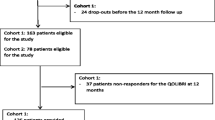Summary
Increasing numbers of those concerned with the primary treatment and later care of individuals who sustain head injuries are becoming interested in the development of methods for assessing the outcome of severe brain damage. In the past such methods seldom involved balanced consideration of the physical, mental and social sequelae of injury. Moreover rehabilitation, which should involve restoration of patients to their fullest physical, mental and social capability, is often biased towards the improvement of physical disability alone. The long lasting and chronically disabling mental changes which occur so frequently, and which tend to cause the greatest difficulties for patients in terms of their reintegration into society, usually receive scant attention.
Assessment of outcome necessitates evaluation of the contribution of both physiogenic and psychogenic factors to the patient's mental state, and thus their respective contributions to the degree of social integration achieved. With these points in mind a pilot study was designed to evaluate three simple indices of outcome—namely neurophysical, mental and social assessment scales. The relation of each scale to the severity of brain damage, assessed in terms of post-traumatic amnesia, was examined. The relation of the scales to each other and to measures of cognitive function (the Wechsler Adult Intelligence Scale) were also considered.
Results from 56 severely brain injured patients reveals a clear cut relation between the duration of post-traumatic amnesia and the measures of disability devised. Further, social disability was related to the level of physical and mental handicap, but it was the latter which caused the most severe problems. The level of intellectual recovery was related to all scales of disability and to the duration of post-traumatic amnesia, although the latter proved to be a less accurate predictor of the ultimate degree of intellectual recovery than was expected.
Similar content being viewed by others
References
Brooks, D. N., Memory and head injury. J. nerv. and ment. Dis.5 (1972), 350–355.
Davidson, K., Bagley, C. R., Schizophrenia-like psychoses associated with organic disorders of the central nervous system: a review of the literature. In Current Problems in Neuropsychiatry, pp. 113–184. Edited by R. N. Herrington. Brit. J. of Psych. Spec. Publ. No. 4 (1969).
Dencker, S. J., A follow-up study of 128 closed head injuries in twins using co-twins as controls. Acta Psych. Neurol.33, suppl. 123 (1958).
Fahy, T. J., Irving, M. A., Millac, P., Severe head injuries: a six year followup. Lancet2 (1967), 475–479.
Heiskanen, O., Sipponen, P., Prognosis of severe brain injury Acta Neurol. Scandinav.46 (1970), 343–348.
Jennett, B., Bond, M. R., Assessment of Outcome After Severe Brain Damage. Lanceti (1975), 480–484.
Lishman, A., The psychiatric sequelae of head injury: a review. Psychological Med.3 (1972), 304–318.
Mandleberg, I., Brooks, D. N., Cognitive recovery after severe head injury. I, serial testing on the Wechsler Adult Intelligence Scale. Personal Communication. 1974.
Newcombe, F., Missile Wounds of the Brain. London: Oxford University Press. 1969.
Rehabilitation. Scot. med. J.9 (1972), 293–294.
Russell, W. R., Cerebral involvement in head injury. A study based on the examination of two hundred cases. Brain55 (1932), 549–603.
Wechsler, D., Manual for the Wechsler Adult Intelligence Scale. New York Psychological Corporation. 1955.
Author information
Authors and Affiliations
Rights and permissions
About this article
Cite this article
Bond, M.R. Assessment of the psychosocial outcome of severe head injury. Acta neurochir 34, 57–70 (1976). https://doi.org/10.1007/BF01405863
Issue Date:
DOI: https://doi.org/10.1007/BF01405863




